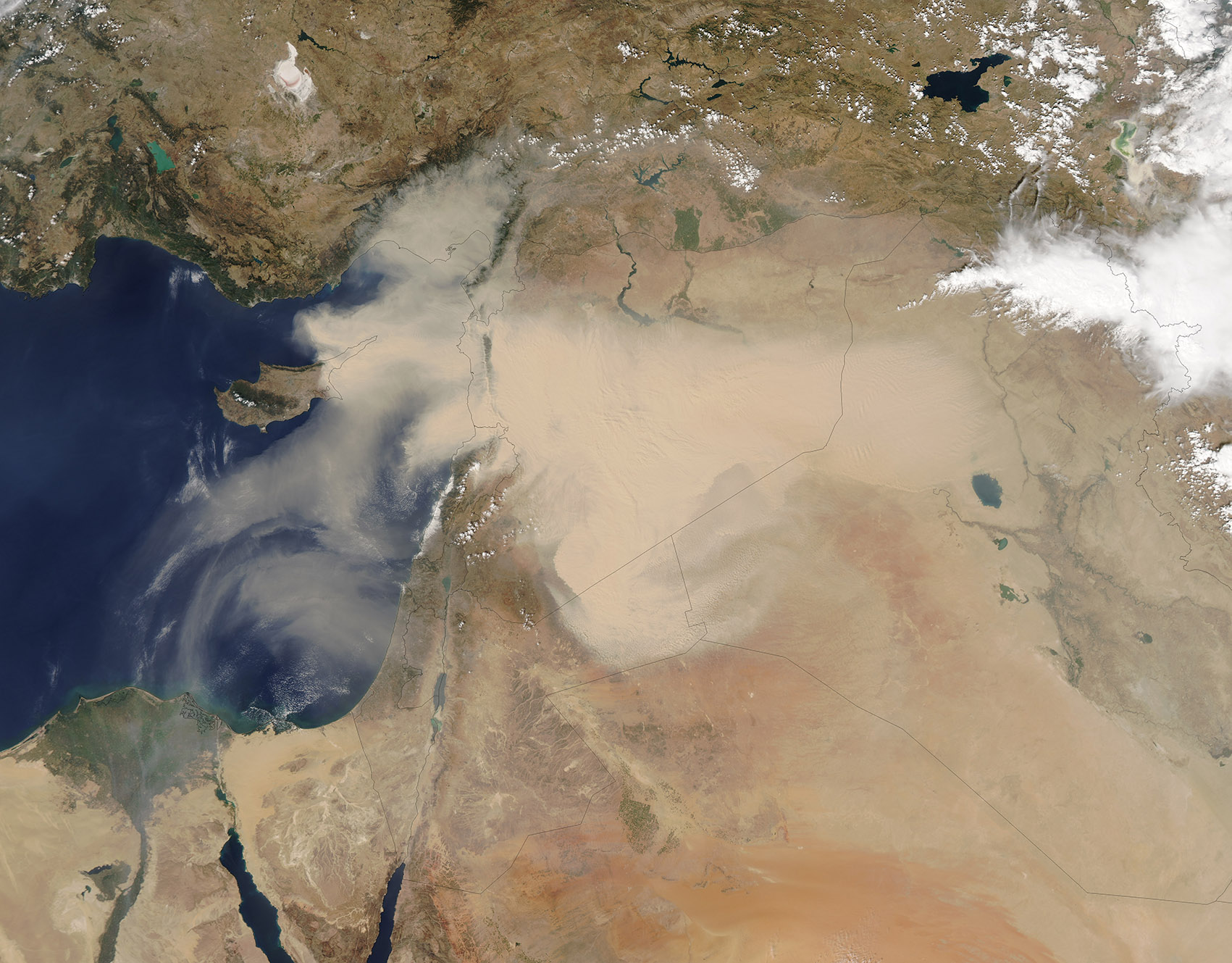Environmental policies of a country can have large-scale impact on the entire region, as evidenced by the strategies employed by Turkey and Saudi Arabia, which have considerably contributed to the Middle East’s struggle with dust and sand storms.
That is why Mohammad Darvish, the head of Public Participation Office at the Department of Environment, believes “Iran should take legal action against those countries”.
Iran, Iraq, Syria, Turkey and Saudi Arabia are all signatories to the United Nations Convention to Combat Desertification.
“That means they have to abide by the convention’s regulations, which explicitly say that every member state must uphold sustainable development guidelines and ensure that development projects are not environmentally harmful,” Darvish told ILNA.
About 40 years ago, the Saudis started tapping into what is known as “fossil water”—large underground water reserves that were established under past climatic and geological conditions—to be able to create farmlands in the arid and barren Arabian Desert.
According to National Geographic, Saudi Arabia has used more than four-fifths of its fossil water; one of the planet’s oldest freshwater resources in one of its hottest and most parched places has been all but emptied in little more than a generation.
Due to the country’s climate, there is virtually no rainfall to replenish groundwater resources, which is why in a May 2012 report, NASA said, “Saudi Arabia is drilling for a resource possibly more precious than oil.”
The unsustainable practice, which has led to the swift depletion of groundwater reserves, has forced farmers to abandon their farms, many of which have become sources of dust and sand storms and are contributing heavily to the Middle East’s plight.
“The Saudis’ unsustainable farming practice has increased sources of dust in the country by 5 million hectares,” Darvish said.
Turkey’s Dam Projects
Dust storms originating in Iraq and Syria frequently affect Iran’s western provinces, occasionally going as far east as Tehran and Qom.
Since 1975, Turkey’s extensive dam and hydropower construction projects have reportedly reduced water flows into Iraq and Syria by approximately 80% and 40% respectively, according to independent Australian research institute, Future Directions International.
“In the Middle East, there has been a significant increase in the frequency and intensity of sand and dust storms in the past 15 years,” Enric Terradellas, a meteorologist with the World Meteorology Organisation’s Sand and Dust Storm Prediction Center for the region, told BBC News in the weekend.
“One of the main sources of sand and dust storms is Iraq where the flow of rivers has decreased because of a race in dam constructions in upstream countries,” he said, without naming Turkey.
“That has led to the disappearance of marshes and drying up of lakes both in Iraq and Iran, and the sediments left behind are very important sources of dust in the region.”
According to Darvish, Turkey’s dam construction has stopped the flow of 38 billion cubic meters of water into Iraq in the past 15 years.
“Iran and other regional countries are not left with much choice but to take legal action,” he added.
Syria is currently embroiled in a civil war while Iraq is grappling with the self-styled Islamic State terrorist group, or Daesh, which make addressing environmental issues a low priority.
“Iranian authorities have sat down with Iraqi officials and offered to help reduce the sources of dust in the neighboring country for free, but because Iraq cannot guarantee the safety of our scientists and experts in the field, we can’t move forward,” Darvish said.
“As long as the Mideast is rife with terrorism and extremism, we cannot effectively tackle environmental issues.”
About 80% of particles in dust storms, which have been ravaging Iran for years, originate outside the country. A multitude of factors, including unsustainable development, climate change, water shortage and drought, have expanded the sources of dust in the region, leading to more frequent and intense dust storms.
A resolution proposed by Iran and backed by Pakistan and Iraq that aims to enlist the aid of Middle East countries to tackle dust storms in the region was approved at the second UN Environment Assembly on May 23-27 in Nairobi, Kenya.
The unwelcome phenomenon has taken a heavy toll on human health and the Iranian government’s coffers, and officials have pinned their hopes on international efforts to effectively end the crisis.


